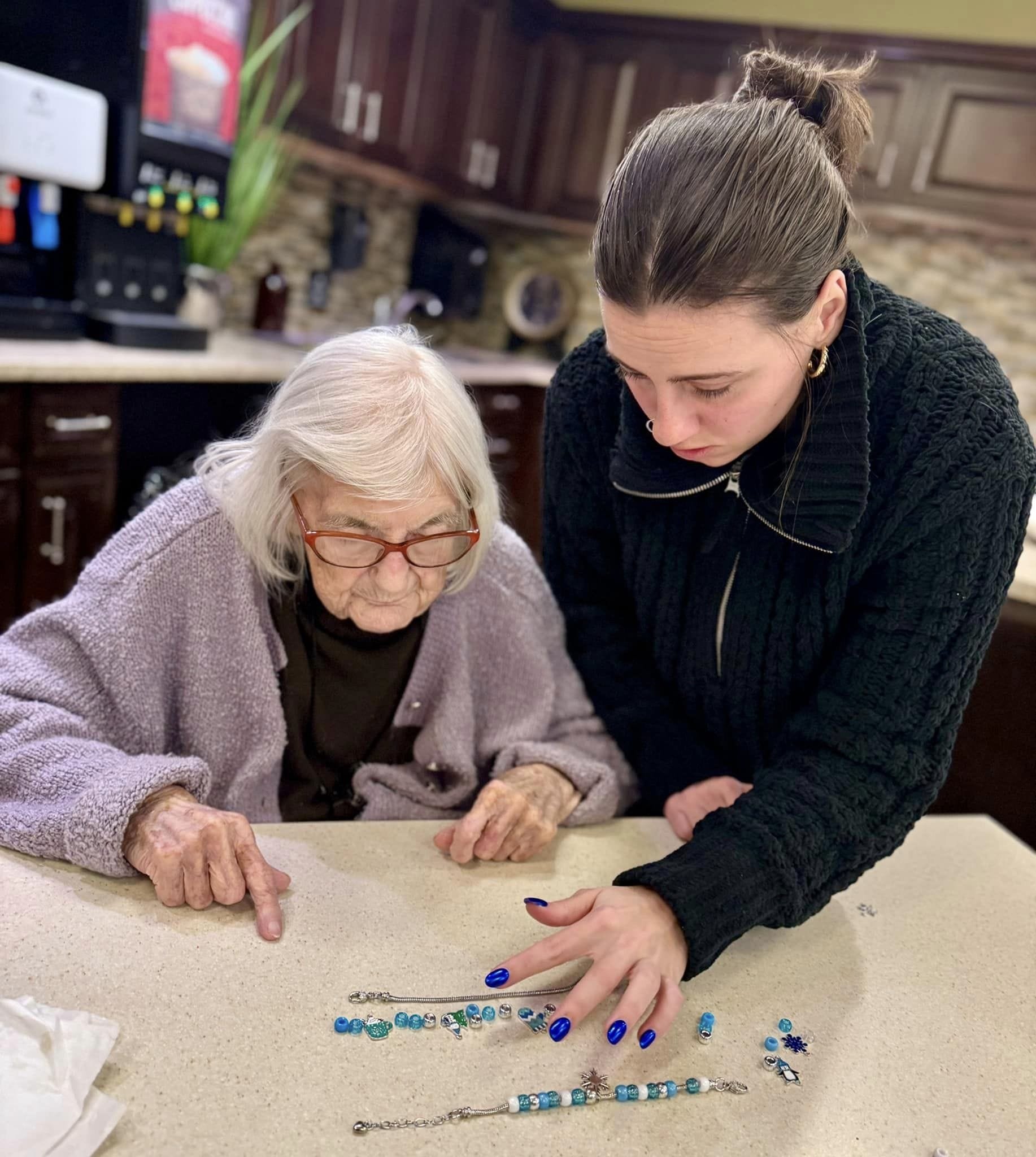Producing a Safe and Supportive Setting for Alzheimer's Care
The production of a helpful and risk-free setting for individuals with Alzheimer's is critical in improving their high quality of life. Discovering these complex techniques can disclose critical insights into effective caregiving techniques that might change the day-to-day experiences of both people and caretakers.
Recognizing Alzheimer's Needs
Frequently, individuals with Alzheimer's disease show a series of demands that call for customized strategies to care. As the problem proceeds, cognitive decline materializes in different methods, affecting memory, reasoning, and even the capacity to execute day-to-day tasks. Caregivers should recognize these evolving demands to supply appropriate assistance and ensure a better of life for those impacted.
One important element of comprehending Alzheimer's needs is recognizing the value of routine and familiarity. People commonly locate comfort in well-known patterns, which can minimize stress and anxiety and complication. Caretakers should make every effort to produce structured day-to-day routines that include purposeful tasks aligned with the individual's capacities and rate of interests.
Additionally, reliable communication is extremely important. Individuals with Alzheimer's might have a hard time to reveal themselves or comprehend complex language. Caregivers need to utilize simple, clear language, use non-verbal signs, and method energetic listening to promote understanding and link.
Caretakers must encourage interaction in neighborhood tasks or family members gatherings, advertising a sense of belonging and purpose. Comprehending these varied demands is crucial for creating a helpful treatment setting.
Designing a Safe Home
Creating a secure home for people with Alzheimer's disease is essential to minimizing threats and advertising freedom. Make certain that paths are clear and well-lit, as correct illumination lowers disorientation and improves flexibility.
Integrating flexible functions is also critical. Set up grab bars in washrooms and near stairs, and take into consideration using non-slip mats in damp areas. In addition, making use of different shades for floors and walls can assist in differentiating spaces, assisting to minimize confusion.
Experience is very important for people with Alzheimer's. Individualizing the atmosphere with acquainted things and photos can enhance a sense of belonging and security - Alzheimers Care Charlotte. It is additionally advantageous to have actually a marked location for daily tasks, such as analysis or crafting, which can provide structure to their day
Finally, applying a secure outside area enables risk-free expedition while attaching with nature. By thoughtfully developing the home atmosphere, caretakers can significantly enhance the lifestyle for people living with Alzheimer's illness.
Enhancing Communication Skills

Non-verbal communication, including faces, gestures, and touch, plays an important role in sharing compassion and understanding. Preserving eye contact and a tranquil temperament can improve the comfort level of the person, promoting a sense of safety and security.
Additionally, it is essential to practice energetic listening. This includes being fully existing, showing perseverance, and enabling the person to reveal themselves without disruption. Repetition might be necessary; caretakers ought to be prepared to take another look at subjects or questions, as people with Alzheimer's might have a hard time with memory recall.
Furthermore, making use of visual help or hints, such as pictures or familiar items, can help with acknowledgment and interaction. Ultimately, improving interaction skills has to do with developing trust and producing a setting where individuals feel listened to, valued, and comprehended, therefore enriching their top quality of life.
Encouraging Social Interaction
Promoting more information purposeful social interactions can substantially enhance the wellness of people with Alzheimer's disease. Engaging with others not just helps combat sensations of seclusion but also boosts cognitive function and psychological health. Structured social activities, such as group crafts, video games and arts, or music therapy, produce chances for citizens to get in touch with peers and caregivers, which can result in enhanced state of mind and lowered anxiousness.
Developing a welcoming environment that encourages socialization is necessary. This can check that be attained by organizing communal areas that assist in communication, such as comfy seating locations or task rooms. Furthermore, integrating culturally appropriate and familiar activities can motivate and stimulate memories involvement, enabling individuals with Alzheimer's to feel more connected to their past experiences.
Furthermore, caregivers ought to be educated to acknowledge and promote social involvement among residents. By focusing on social communication, we can considerably enrich the lives of those living with Alzheimer's, cultivating a sense of area and belonging.
Supporting Caregiver Well-being

To sustain caretakers, organizations ought to use normal training and educational sources to enhance their understanding of Alzheimer's illness and caregiving methods. Giving accessibility to respite care services permits caretakers to take necessary breaks, minimizing stress and anxiety and exhaustion - Alzheimers Care Charlotte. Additionally, fostering an area through support groups can help with emotional sharing and the exchange of functional suggestions amongst caretakers, creating a network of mutual support
Mental wellness resources, such as counseling services, can likewise be important link crucial in addressing the emotional toll caregiving can take. By focusing on caretaker health, we produce an even more lasting caregiving setting that not only benefits the caretakers themselves yet also enhances the general top quality of treatment gotten by individuals with Alzheimer's. Ultimately, supporting caregivers is a necessary element in promoting a caring and effective treatment setting.
Final Thought
In conclusion, the creation of a helpful and risk-free atmosphere for individuals with Alzheimer's is vital to enhancing their top quality of life. By focusing on security with thoughtful style, fostering psychological wellness with familiar components, and advertising engagement through structured regimens, caretakers can considerably impact the total experience of those impacted by this problem. In addition, sustaining caregiver health is vital, as it ultimately adds to a more thoughtful and efficient treatment atmosphere.
Repeating might be needed; caretakers ought to be prepared to take another look at topics or questions, as individuals with Alzheimer's might battle with memory recall.
